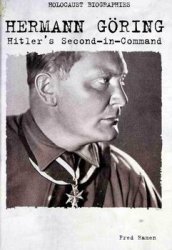The Anti-Imperialist League grew out of the opposition to the war with Spain and its consequences. Prominent Americans spoke out against military intervention to free Cuba
Apache War 17
From Spain before war was declared in April 1898. Once U. S. forces seized Spain’s insular possessions, these spokes-people began to organize to prevent colonialism.
On June 15, 1898, a rally at Boston’s historic Faneuil Hall formed a committee of correspondence, which resulted in an Anti-Imperialist League five months later. At first its efforts focused on a petition campaign to block permanent acquisition of the newly conquered territory. The outbreak in February 1899 of the Philippine Rebellion against American rule inspired others to form Anti-Imperialist Leagues. Outside of New England, the Single Tax followers of Henry George were responsible for forming branch offices. Finally, in October 1899 activists established the American Anti-Imperialist League with its national office in Chicago and George S. Boutwell, a former member of Ulysses S. Grant’s cabinet, as its president.
The anti-imperialists shared high status and advanced years but lacked a clear-cut alternative foreign policy program. Most were economic conservatives and were uneasy when William Jennings Bryan took up the fight against IMPERIALISM as the Democratic presidential candidate in 1900. While Bryan claimed fORElGN POLICY issues were the center of his candidacy, he continued to advocate Free Silver monetization. This stand alienated such anti-imperialists as Andrew Carnegie and Senator George F. Hoar. Some defectors in the New York office withdrew to form a nonpartisan organization, while others established Liberty Leagues to advocate Philippine independence.
After 1901 the seven remaining league offices continued to criticize the Philippine-American War, but they were again disappointed when the DEMOCRATIC Party chose a lackluster candidate to oppose Theodore Roosevelt in the 1904 election. The national office moved to Boston and the league survived until 1921.
See also ATKINSON, Edward; Filipino insurrection; Free Silver movement; Spanish-American War.
Further reading: Robert L. Beisner, Twelve against E-mpire: The An-ti-lmperialists, 1898-1900 (New York: McGraw-Hill, 1968); E. Berkeley Tompkins, AntiImperialism in the United States: The Great Debate, 1890-1920 (Philadelphia: University of Pennsylvania Press, 1970).
—Bruce Abrams
Anti-Saloon League See Prohibition Party.




 World History
World History









